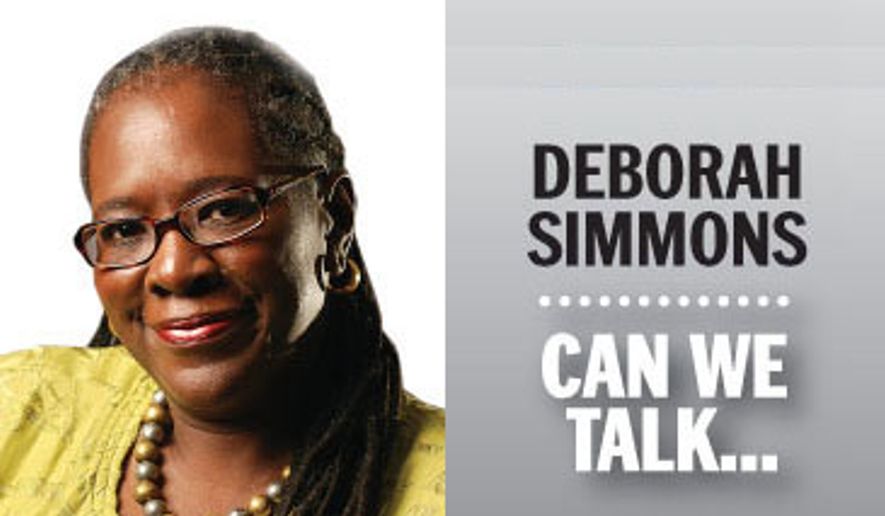ANALYSIS/OPINION:
Some history is worth repeating.
Take Mike Pence and Tim Kaine, plop them onto a stage at Longwood University, and what do you get? The only vice presidential debate of the election cycle, of course, and a lesson in American history.
It’s easy to label the Trump-Pence vs. Clinton-Kaine election as historical. Indeed, all our presidential elections are historical, even if we do not like the outcome. Recall the 2000 election, which, no matter how many times ballots were counted, the outcome remained the same.
Still, the historical context of the 2016 election is notable as our nation’s first African-American president prepares to leave the White House and the possibility that our nation’s first elected female president races to enter it.
It is also notable as the three R’s — race, religion and republicanism — crowd the public square of the election. After all, we learn in history classes that even Ulysses S. Grant and Robert E. Lee didn’t greet each other to draw more blood. Instead, Grant removed his hat, and Lee followed suit. And with those gestures, our nation’s bloodiest war was over.
Lee’s surrender of the South to the North occurred at Appomattox Court House, near Farmville, Virginia — where Mr. Pence, a Republican, and Mr. Kaine, a Democrat, will debate Tuesday for their respective tickets.
Now, Farmville isn’t a modern urban area. A farming region of Prince Edward County, its population today is an estimated 8,200, and one of its pre-Civil War institutions is Longwood University, which Methodists began in 1839 as an all-girls seminary (and, yes, it now admits boys).
Longwood is hosting the debate because a student considered the history of the Appomattox connection and suggested it to a member of the faculty. The school proposed serving as the host and, well, there Mr. Kaine, a former governor of Virginia, and Mr. Pence, the current governor of Indiana, will be on Tuesday.
Still, there’s another piece of Farmville history that’s equally noteworthy.
Most, if not all, of you readers are aware of the landmark school desegregation ruling handed down by the U.S. Supreme Court in 1954. Sometimes that case is referred to a Brown v. Board of Education. In fact, Brown was combined with four other lawsuits brought by the NAACP: Gebhart v. Belton in Delaware, Briggs v. Elliott in South Carolina, Bolling v. Sharpe in Washington, D.C., and Davis v. Prince Edward County in Virginia. The latter lawsuit involved Farmville, where black families and their supporters made a particularly strong example of the racially separate but clearly unequal academic opportunities and schoolhouse facilities.
See, in 1951 — before the ruling, before police became targets, and long before the leaders of Black Lives Matter were twinkles in their grandparents’ eyes — the all-black Moton High School student body walked out in protest. They merely wanted roofs that didn’t leak and classrooms that weren’t furnaces in the summer and freezers in the winter.
Following the Brown decision, a Democrat and Shenandoah native, Sen. Harry F. Byrd, backed shutting down Virginia’s entire public education system rather than integrate schools. He’s gone on to glory now, so you needn’t imagine him trying to resurrect Grant and throwing his own hat to begin a new civil war.
Do, however, consider that Mr. Kaine might, just might, consider repeating a bit of history Tuesday, considering that he was governor in 2008 when the Virginia Civil Right Memorial in Richmond was dedicated featuring the Moton students who protested the deplorable conditions of their one and only high school.
Elephants (the Republican symbol) have long memories. Jackasses, not so much.
However, if Mr. Pence gets to discuss a neglected issue this campaign season — and that issue is public education — he probably could awaken the spirit of the Lion of Anacostia, former slave and Maryland-born statesman Frederick Douglass, who said: “Knowledge makes a man unfit to be a slave.”
While America’s Founding Fathers did not pronounce such insight, Douglass’ words are a historical note worth repeating these days.
• Deborah Simmons can be contacted at dsimmons@washingtontimes.com.
• Deborah Simmons can be reached at dsimmons@washingtontimes.com.




Please read our comment policy before commenting.